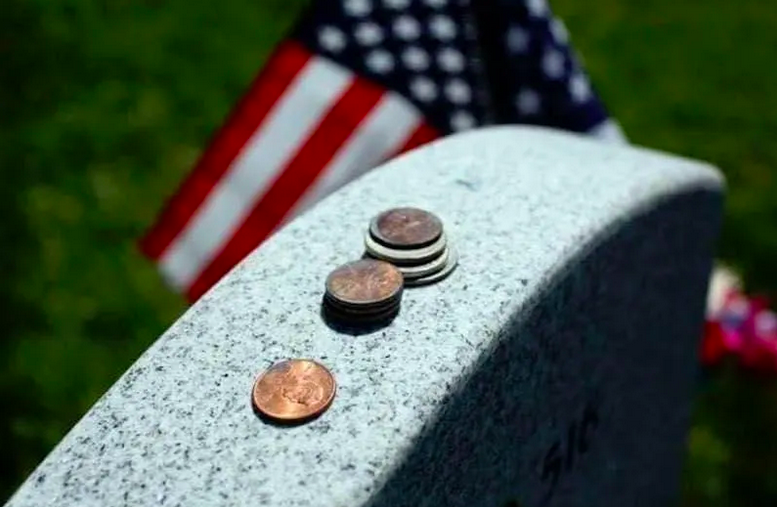
Have you ever been in a cemetery and saw coins laying on a headstone?
A coin left on a headstone lets the deceased soldier’s family know that somebody stopped by to pay their respect.
A penny means you visited.
A nickel means you and the deceased veteran trained at boot camp together.
A dime means you and the deceased veteran served together in some capacity.
A quarter is very significant because it means that you were there when that veteran died.
The tradition of leaving coins on the headstones of military men and women can be traced to as far back as the Roman Empire. Soldiers would insert a coin into the mouth of a fallen soldier to ensure they could cross the “River Styx” into the afterlife. In the US, this practice became common during the Vietnam war, due to the political divide in the country over the war, leaving a coin was seen as a more practical way to communicate that you had visited the grave than contacting the soldier’s family, which could devolve into an uncomfortable argument over politics relating to the war.
What happens to the coins? It is collected from the gravesites monthly and the money is used for cemetery maintenance, the cost
of burial for soldiers, or the care for indigent soldiers.
